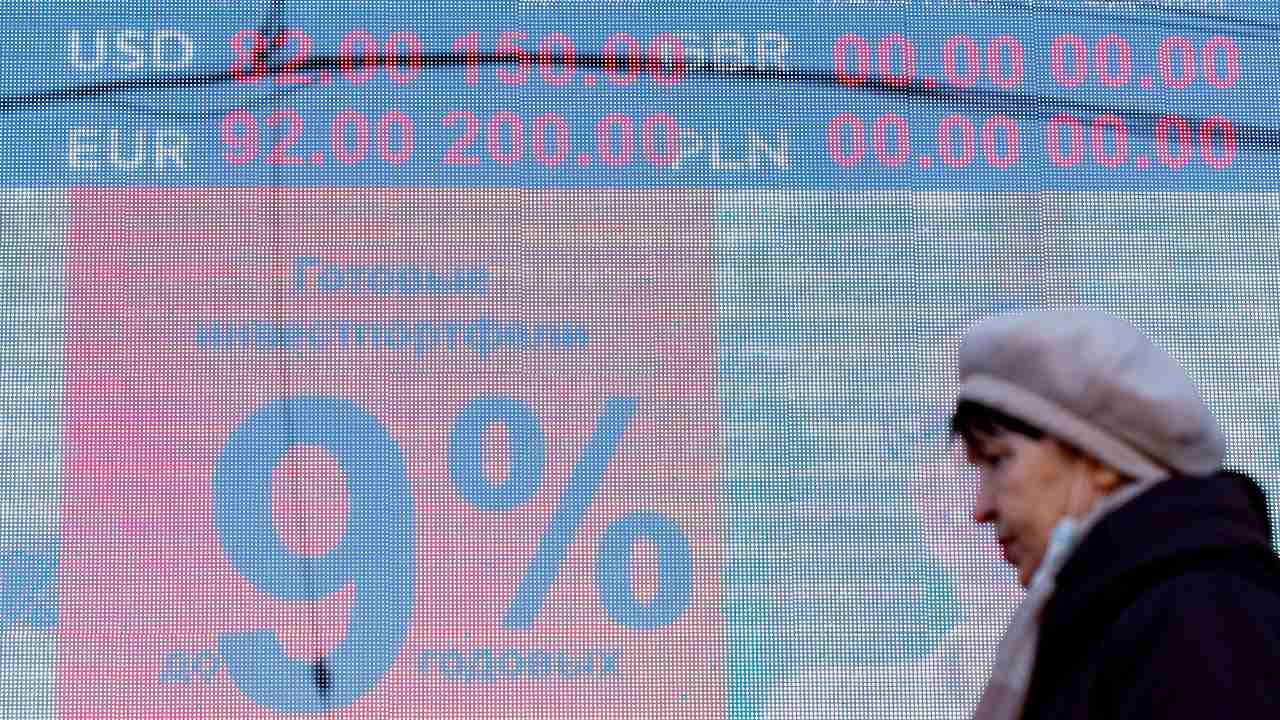There should be no controversy in the statement that Russia is better as a friend than an enemy; that a future based on collaboration instead of confrontation works for everyone.
It is understandable that as the guns continue to speak, Western powers rarely talk of the possibility of working with Russia. The short-term focus on weapons, sanctions, and coalition building is clearly appropriate in the midst of a war of aggression, but the West needs to make plain that its long-term goal is collaboration, not confrontation: a successful Russia as an integral part of a dynamic and flourishing Europe.
This message is important not just for the Russian people, fed on tales of irrational Western hatred, but also for those who may follow Putin and may even now be considering how to remove him from office.
A prosperous Russia would have no place for a corrupt autocracy draining resources for its own use and could blow Putin and his plutocrats away. The president is well aware of this and does everything he can to keep the potential for prosperity out of view, by manufacturing threats from the West and presenting himself as the Russian people’s only credible defense. He foments military confrontation as the focus of attention, not only for his own population but also for the West.
For example, the threat of an attack by NATO is fanciful. NATO has always been a purely defensive alliance and has never done any planning for offensive operations. Painting NATO as a threat is a fabrication designed to protect Putin from the real threat to his regime of economic prosperity that would follow active integration into the industrialized world.
What could this integration include?
- Reinvigorated economic ties with the West. Starbucks and McDonald’s would be visible symbols in city centers alongside a return of many of the 1,000-plus Western companies that have withdrawn since Putin’s all-out war began in February.
- An interactive energy relationship with Europe. The war has made Russian oil and gas deliveries a center of controversy, with deliveries steadily declining and heavily affecting both the Russian and European economies. Integration could bring agreements on reasonable levels of Russian oil and gas supply and lead Russia into a world of renewables, energy efficiency, and technical support for the development of modern industries.
- An expanded and stabilized agricultural sector. Russian agriculture dominates the world grain market, with dozens of countries dependent on its imports to feed their populations. These exports, though generally exempted from Western sanctions, have been restrained by the war, particularly due to their reliance on seed and pesticide imports, especially from Western Europe. The Russian agricultural sector could also benefit from modern technologies and if, as expected, global warming opens large areas of Siberia for cultivation, it will require significant investment in both equipment and infrastructure.
- Expanded cooperation in space. This is an area where Russia has had a very visible global leadership role, but a recent announcement on the planned Russian withdrawal from the International Space Station focused attention on its need for high-tech imports to address its aging equipment and growing safety risks.
- Broadened international ties. In 2007, Foreign Minister Sergey Lavrov was celebrating 50 years of US-Russian cultural exchanges, but things have gone downhill significantly since then. International cooperation has never been more critical to scientific advancement and, as a result, to Russian economic development.
- Invigorated tourist exchanges. By 2019, yearly tourist income for Russia had reached nearly $20bn, but dropped sharply the next year and has been severely impacted by the Ukraine war. Finland, one of the last major destinations for Russian tourists, is acting to place restrictions already imposed by other countries sharing a border with Russia. Renewed tourism would not only help Russian finances but would significantly increase personal contact between Russians and Westerners.
- Modernized Russian infrastructure. Russian roads are in terrible condition. Applying the principles and approaches of Eisenhower’s Interstate Highway System could bring Russia’s dilapidated infrastructure network into the modern world and provide a major economic boost.
Such economic integration is the true “threat” from which Putin is protecting the Russian people. Thanks to his control of the media, he has successfully buried this fact in a torrent of propaganda rooted in a warped version of Russian history which stresses that only he can defend the nation against the West. As a result, the majority of Russians support the war in Ukraine and subscribe to Putin’s illusion that the West hates Russia and dreams of destroying it.
Even as it arms Ukraine and supports it in its fight against Putin’s aggression, the West needs to counter the Kremlin narrative and make clear it wants a successful future for Russia, built through collaboration and integration. Prosperity in Russia would be a major improvement for the Russian people, for Europeans, and for the world.
Edward Corcoran enrolled in Columbia University’s Russian graduate program in 1961. He is a retired US Army officer who served as a Liaison Officer to the Commander-in-Chief, Group of Soviet Forces, Germany, and later as a Strategic Analyst for the Army General Staff. More recently, he has been supporting Afghanistan and commenting on the events in Ukraine.
Europe’s Edge is CEPA’s online journal covering critical topics on the foreign policy docket across Europe and North America. All opinions are those of the author and do not necessarily represent the position or views of the institutions they represent or the Center for European Policy Analysis.





